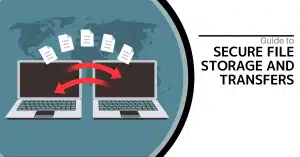Experience and Qualification Don’t Always Go together
consider the regular duties of an internal IT department. Unless the business in question is doing a few things very wrong, the IT department probably isn’t putting out major fires on a regular basis, either literally or figuratively. Furthermore, consider the possibility that, while your internal resource is experienced in a particular version of some process or solution, what about the new versions that they have yet to encounter? When the time comes to implement these later versions out of necessity, your internal IT resources will be unfamiliar with them, essentially starting at square one.
On the other hand, an MSP is much more likely to have dealt with major issues more often than an internal resource may have. This is because they will have been monitoring the network systems of numerous clients in order to protect them, rather than monitoring a single organization’s resources. This means that they are statistically more likely to have to deal with new issues than a single internal team might. For similar reasons, they are much more likely to be educated in more up-to-date solutions, as their variety of clients are more likely to have different versions of a wider range of programs put into place.
An MSP Allows Their Clients to Be More Competitive
One of the most clear benefits of outsourcing is the fact that it frees your internal employees to accomplish other things that will advance your business. This doubled productivity can have a few effects on the SMB in question. First, outsourcing allows much of the same progress to be made on a project for comparable, if not lower, costs than it would take for an internal team to dedicate their time to the same project. As a result, the SMB can become more competitive by offering their clients a relief from these costs.
Plus, by utilizing an MSP, an SMB can often take advantage of technology services that would otherwise only be available to large corporations. In doing so, that business can leverage the same tools to provide comparable services on a more personal level, encouraging their prospects to go to them first.
Security, Risk Management, and Compliance are MSP Priorities
A business could be very easily crippled if they experienced a data leak that allowed their customers’ data to fall into the wrong hands. In response to this, businesses are held to a variety of standards that they must be faithful to in order to accept digital forms of payment. An MSP’s services include ensuring that a business is fully secured and in compliance with these mandated requirements.
Additionally, a managed service provider can help protect a business from internal risks as well. Through the monitoring of the business’ systems, an MSP can identify potential issues and resolve them before they negatively impact the business.
These were just a few brief examples of how outsourcing some IT responsibilities to a managed service provider can benefit your business in the short and long term. For more information, reach out to us at (831) 758-3636 to talk about solutions for
your Business.








